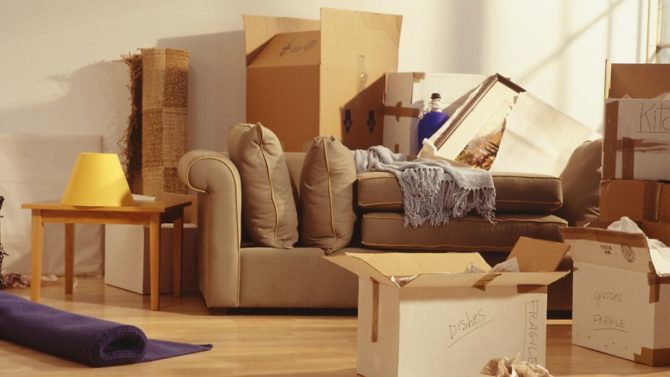Removals checklist: 7 super tips for moving to France


From finding a reputable removals firm to packing fragile belongings and putting teabags in your day bag, here is what you need to know in order to have a smooth move across the Channel
Choose a reputable company as early as possible
Start searching for a removals company as soon as you start seriously house-hunting so you can get a range of quotes and plan well in advance.
It’s always ideal to use a firm that has been recommended to you, but if that’s not possible then check if firms are members of the British Association of Removers Overseas (BAR). You should ideally get several quotes before settling on one company. Ask questions such as how long they’ve been doing removals to France, and how many trips they make each month. Find out how many lorries and crews they have, and how new their lorries are. Can they provide recent references, and what insurance cover do they provide? Don’t forget to read all their terms and conditions.
Get a pre-move survey
Larger and/or local companies often send a representative to your home to discuss your move and take details of everything that will need to be moved before they provide a quote. Others may not be able to visit but will ask you to complete a questionnaire listing all the items you intend to move, your destination etc. Either way, it enables the company to work out the cubic capacity to be moved, the size of the vehicle required, the number of packers/movers needed, and how long the whole process will take. Don’t make your decision purely on price; choose a reputable company that offers all the services you require.
Provide the right information
It’s not enough to just give them your address. Make sure you’ve advised them of any problems they may have with access, such as narrow roads, awkward drives, lack of parking (you may need to get a permit for the day) and so on. Photos or sketches of your property and the surrounds may help, and make sure the removals company has any contact numbers they’ll need. If your property is an apartment, is there a lift or just stairs? Whether a house or flat, consider if you have any bulky furniture or white goods that won’t fit through doors or up stairs. You may need to dismantle them. If you won’t be there when your removals lorry arrives, make sure the keys are available.
__________________________________________________________
Don’t miss
Protect your UK property from fraud while you’re in France
Explained: the compromis de vente
Save money buying French property
__________________________________________________________
Get insurance in place
Regardless of whether you’re moving your possessions yourself or using a professional company, you should have a comprehensive insurance policy covering damage and loss on all items, both in transit and while being moved into and out of each property. Is there anything I can’t take or need to declare at customs?Some items aren’t allowed into France, such as drugs and narcotics, certain food, dried flower arrangements, animal skins or furs, ivory etc.
Plan the packing
Packing as much as possible in advance is key. Fridges and washing machines will need to be disconnected, emptied and cleaned. Fragile items will need to be carefully wrapped and packed – and marked as fragile. If you’re doing the packing yourself, start at least two weeks before your move. Work out where you want your furniture and possessions to go in your new home and label all your boxes accordingly (contents and rooms). It may be worth drawing up a plan for your removals company showing where you want everything to go.
Pack smart
Don’t overload boxes with heavy items; you may be able to pack heavy objects in with lighter ones to spread the load. And don’t pack everything! Work out what you really want to take with you to France. Donate the rest to charities, sell unused items, and take rubbish to the tip. It’s a big job so start well before the move! Your removals company can often provide packing materials and boxes, or it may be worth paying for them to pack up all your belongings. As well as saving you the hassle, it ensures all your items are covered for breakages etc. If there’s a gap between moving out of your old property and into your new home, you may have to arrange storage for your items – your removals company may be able to help you with this.
Be ready to put the kettle on
Think about what you’ll need immediately when you get to your new property. Pack a bag with a change of clothes and essential toiletries. Also, clearly label a box with items such as tea and coffee, mugs, plates, cutlery and so on. Other things to consider are lightbulbs, candles, matches, torches, loo roll, kitchen roll, basic tools, bed linen, towels etc. It’s probably best taking all these items in your own car. You may wish to keep valuables (financial or sentimental), cash and important documents with you. And don’t forget your passport! If possible, arrange that utilities (gas, electricity and water) will still be running at your new home, so you just have to change the name on the account on the day you sign the final contracts for the property rather than getting them reconnected. It’s also handy to have working electrics and running water when you arrive so that you get the kettle on!
Share to: Facebook Twitter LinkedIn Email


